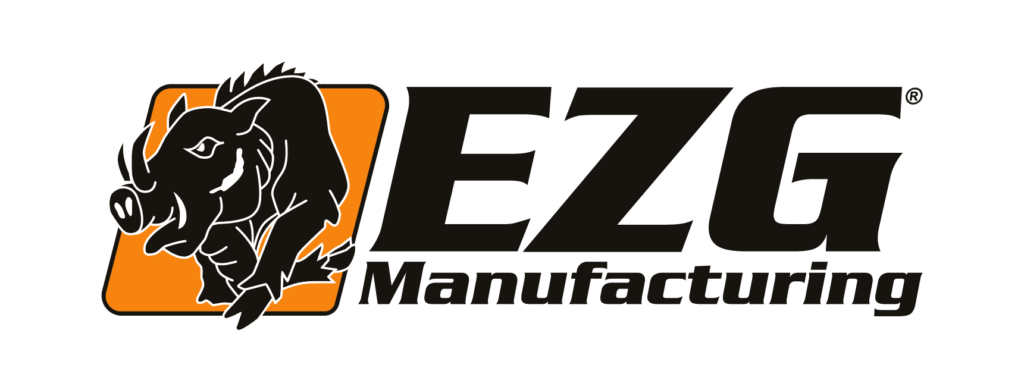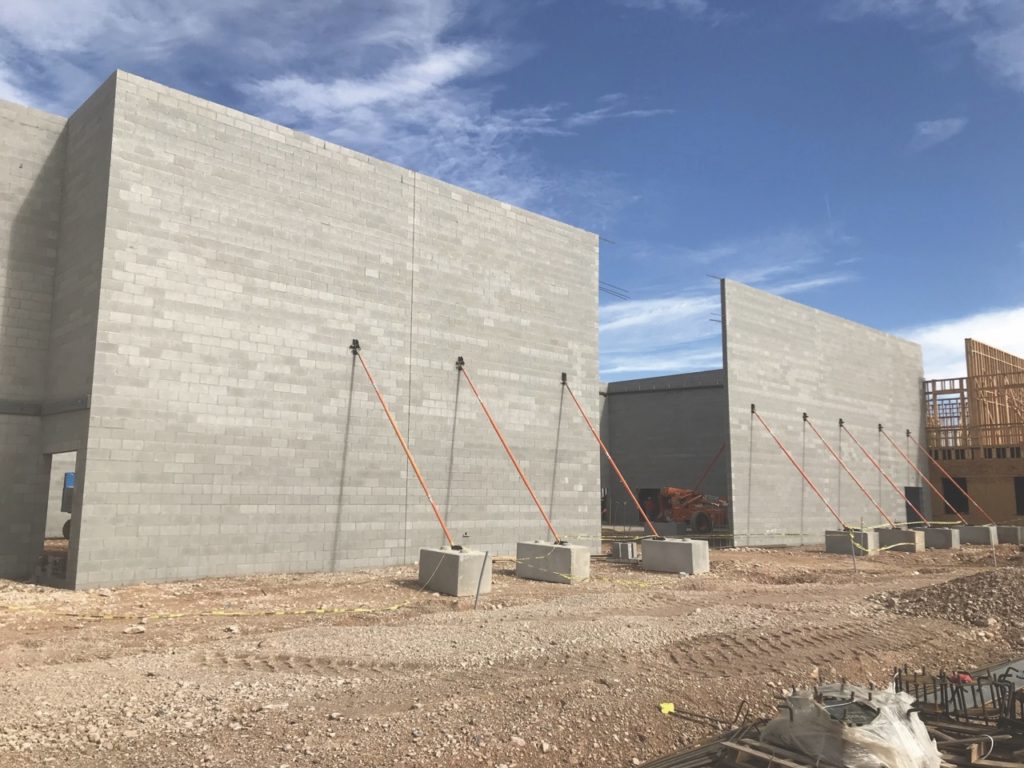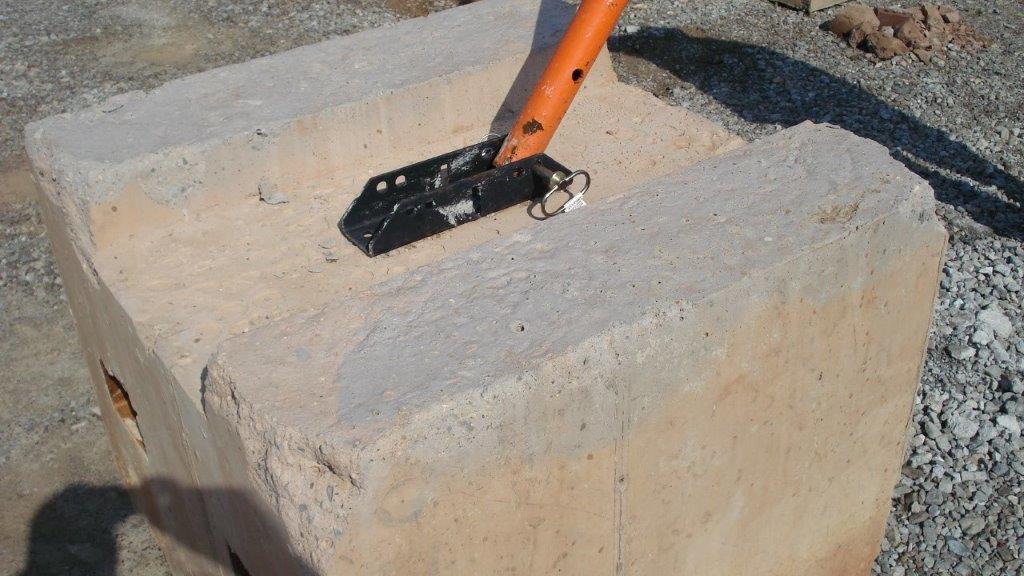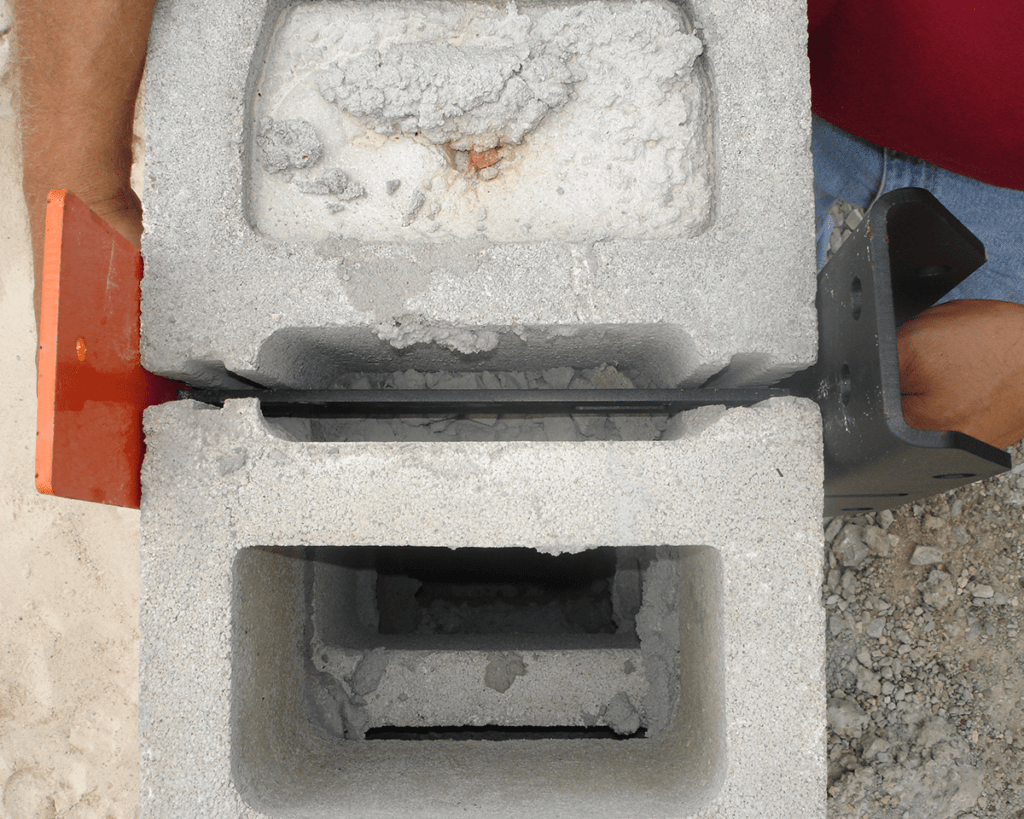Reinforcing Masonry Projects: The Hog Leg Wall Bracing System - Sponsored by EZG Manufacturing
Words: Allyssa Costanza
Ensuring Stability and Durability
Strengthening masonry structures is not just about bricks and mortar; it's about ensuring stability and longevity. In the realm of masonry construction, where every brick counts towards the integrity of a building, the Hog Leg Wall Bracing System emerges as a beacon of reliability and efficiency. Designed to offer robust support while simplifying installation, this system revolutionizes the standard approach to bracing – becoming an ally to masonry professionals seeking to fortify their projects with unwavering support and streamlined installation processes.
Maximizing Bracing Capacity: HL400Kit and HL14EXTKIT
When embarking on a masonry project, the question of bracing capacity often looms large. Fortunately, the Hog Leg Wall Bracing System provides a clear answer. When considering this system, one of the first questions we receive is about its capacity. So, let’s answer that for you.
How much bracing can you get out of a Hog Leg Wall Bracing System kit?
With options like the HL400Kit and HL14EXTKIT, capable of supporting up to 400 lineal feet of wall each, the system offers scalability to meet diverse project requirements. Determining the precise amount of bracing needed is made simple through comprehensive manuals and reference charts. By considering factors such as wall height, rebar size, CMU size, and grout spacing, you can quickly ascertain the required brace length and quantity, ensuring adherence to industry standards. This process helps you adhere to the standard practice of bracing masonry walls efficiently.
 Hog Legs Wall Bracing shown attached to dead man blocks
Hog Legs Wall Bracing shown attached to dead man blocks
Efficient Installation Process: Seamless Integration and Stability
Another frequently asked question we receive is: How do you install the Hog Leg wall braces?
The ease of installation is a hallmark of the Hog Leg Wall Bracing System. Its straightforward design ensures efficiency without compromising effectiveness. Installation begins by interlocking two different diameter pipes using a pin, establishing a sturdy foundation for the bracing system. Additional pipe segments are seamlessly added to achieve the desired brace length, tailored to the specific dimensions of the masonry structure. Securing the brace to the wall and floor is achieved through intuitive integration with the wall bracket and footer or Deadman. Installing the wall bracket involves a simple process of inserting a T-bar into the head joint and using wedges to secure it to the wall. With the bottom pipe firmly pinned to the wall/floor bracket, the structure gains the stability it requires for long-term durability.
Engineered for Consistency: Detailed Charts and Pre-engineered Solutions
While some may wonder if the Hog Leg Wall Bracing System comes with an engineered plan, the answer lies in its meticulous engineering. While not providing site-specific plans, the system includes detailed charts within its manuals, catering to various block sizes, wall heights, rebar sizes, and grouting on-center distances. This standardized approach simplifies planning and earns the trust of contractors who recognize adherence to the Standard Practice for Bracing Masonry Walls. The Hog Leg kit is engineered to deliver consistent results across a spectrum of masonry applications, ensuring reliability and peace of mind for professionals and clients alike.

Ease of Installation: Efficiency and Intuitive Design
Is the Hog Leg bracing system hard to install?
Efficiency and ease of installation are at the core of the Hog Leg Wall Bracing System. With just a crew of two, you can confidently install the system, reinforcing masonry projects with precision and efficiency. For additional guidance, a comprehensive instructional video is available, offering invaluable insights and tips to optimize the installation process. Whether you're a novice or a seasoned professional, the system's intuitive design ensures a smooth and hassle-free experience, allowing you to focus on delivering exceptional results without unnecessary complexity.
 Hog Leg wall block anchor set-up
Hog Leg wall block anchor set-up
Trust in the Hog Leg System for Reliable Masonry Reinforcement
In summary, the Hog Leg Wall Bracing System stands out as a reliable solution in the world of masonry construction. Offering robust support, straightforward installation, and adherence to industry standards, it empowers professionals to elevate projects with confidence. With the Hog Leg Wall Bracing System, fortifying masonry structures for years to come becomes not just a possibility but a certainty.
Strengthen Your Masonry Projects with Hog Leg
Ready to reinforce your masonry projects with the Hog Leg Wall Bracing System? Visit EZG Manufacturing's website to explore our range of Hog Leg products and take the first step towards building with confidence. Trust in Hog Leg, and build with assurance.